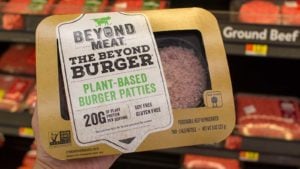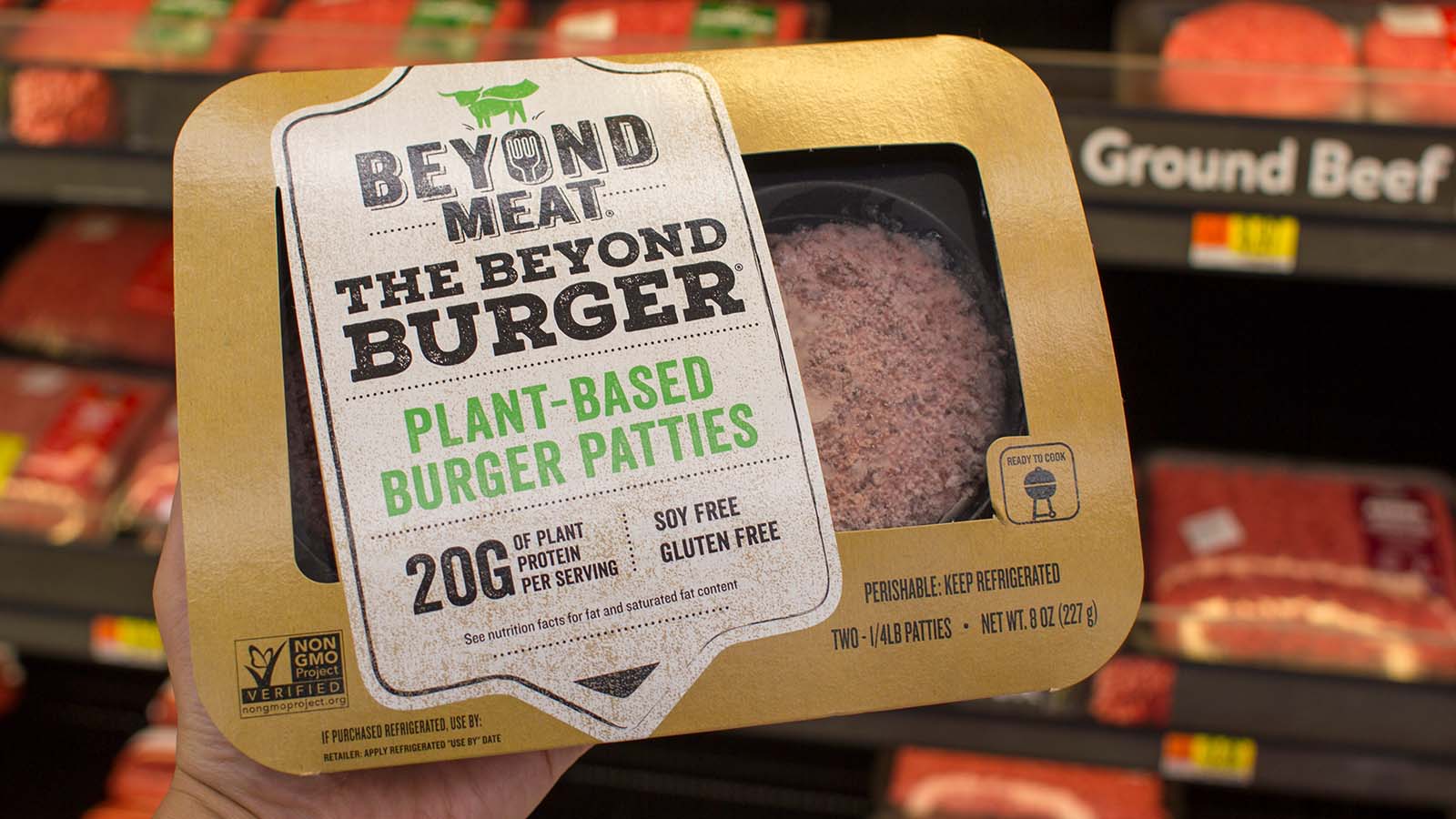Beyond Meat (NASDAQ:BYND) stock excited investors throughout 2019. In a year in which many high-profile initial public offerings crashed and burned, Beyond Meat was a true superstar.

While the IPOs of ride-sharing companies and other big names flopped, the feisty alternative-meat upstart dazzled its hardcore fans and spectators alike, as its shares rose as much as 800% from their IPO price.
However, it seems that the party has already come to an end. Beyond Meat has lost more than half its value since its peak, while insiders have sold the stock in bulk, indicating that its $200 price tag was simply outlandish. Meanwhile, the rise of additional competition casts doubt on Beyond Meat’s ability to maintain its stellar growth rates for much longer.
The Competition Will Eat Beyond Meat For Lunch
Beyond Meat bulls can point to the rapid growth of the company’s distribution points and big-name partners, including the Los Angeles Lakers. However, there’s little evidence that these deals will cement Beyond Meat as a durable, winning brand for the long-run. It’s estimated that plant-based meats are a $12 billion market now, and that they will grow to $27 billion over the next five years. That sounds good.
Yet the amount of competition in the space is growing at a much faster rate. All the major established protein companies like Tyson (NYSE:TSN), Hormel (NYSE:HRL) and Maple Leaf Foods already have their own plant-based products. Tyson in particular has a bunch of competing brands, as it has its own products and has invested in numerous upstart competitors in the space.
There’s an inherent contradiction in the bullish thesis on Beyond Meat. On the one hand, the company needs a large market, including people who eat animal meat, to consume Beyond Meat’s products for the stock’s valuation to make any sense.
But for bulls’ estimates to be accurate, those same consumers have to reject products from the likes of Hormel and Tyson simply because they also sell animal meat. However, the average consumers who goes to fast food chains and supermarkets don’t care if companies make animal meat products. If a big company sells high-quality plant burgers, most consumers will be willing to buy them.
The Battle for Consumers’ Loyalty
Meanwhile, on grocery store shelves, the Tysons and Conagras (NYSE:CAG) of the world will win again, as they have decades-old distribution agreements with grocery stores and sell products in many of their aisles. They have way more influence and marketing power than a one-hit-wonder company like Beyond Meat. Look at Conagra, whose stock jumped 16% on Thursday.
It reported strong earnings, in part due to its Gardein line of plant-based meats, which grew rapidly in the third quarter. On their conference call, Conagra noted that it is investing heavily in additional manufacturing and distribution capability for its brand that competes with Beyond Meat.
Given the power of established companies like Conagra, the route to success for food and beverage startups has usually been to sell themselves to larger companies. However, with Beyond Meat’s valuation already up in the stratosphere, it’s not a good takeover candidate. Any company that acquires Beyond Meat would crush the acquirer’s valuation and profitability.
And Beyond Meat isn’t the only start-up in the space. Even if, somehow, the upstarts manage to beat Tyson, Conagra, Hormel, and a long list of other rivals, they will still have plenty of competition. Burger King’s Impossible Whopper after all, is not made by Beyond Meant, but by another start-up.
Beyond Is Already Losing Traction
During the last Beyond Meat conference call, Seth Goldman, the company’s Executive Chair, said:
So we do anticipate we’ll be doing more promotion through trade and discounts going into the future. But we’ve been fortunate with the demand that we’ve seen. We haven’t had to do a lot of promotions so far.
Remember, the company is barely breaking even now. And that’s with its profit margins still relatively high, as the flood of competing products has just started to reach supermarket shelves. With that in mind, Goldman noted that the company will be discounting more going forward and that it hasn’t had to implement competitive pricing “so far.” Those are the magic words. As the company’s pricing pressures mount and its profit margins drop, Beyond Meat’s stock will suffer a crushing blow.
After the recent plunge of Beyond Meat’s stock price, the shares have gone from absurdly priced to – well – still absurd. In fact, little has changed. Whether or not Beyond Meat has a market cap of $5 billion or $10 billion, its valuation is still not close to realistic.
Its 2019 revenue will be just $270 million, so it is still selling at nearly 20 times its revenue.The stocks of normal meat products companies, by contrast, sell for two times their revenue or less. Tyson currently is selling for less than one time its revenue. Beyond Meat remains an outlier.
On the bottom line, things don’t look much better. Beyond Meat is selling for around 250 times its 2019 adjusted EBITDA. By contrast, ordinary meat companies sell for no more than 15 times their EBITDA, even during good times.
Beyond Meat’s Bottom Line
Beyond Meat reminds me of Tilray (NASDAQ:TLRY) at this point. Both sell fast-growing products focused on an emerging consumer products space. Both have a fashionable product and tons of cool people using it. Celebrity endorsements keep rolling in. Once the stocks launched their IPOs, they went sky-high. Tilray soared from $25 to as high as $300. Beyond Meat jumped from $25 to more than $200.
Tilray has already collapsed. Not too long ago, Tilray’s shares fell back below their original IPO price. Anyone who bought the stock during the IPO has seen their gains disappear. And those who bought the stock near the top has suffered crushing losses.
Beyond Meat appears to be following the same trajectory. While its shares are only back down to $78 so far, don’t think for a second that they can’t return to $25. Just as oversupply crushed the recreational cannabis market, a flood of plant-based consumer products will scorch Beyond Meat’s margins and reveal the company to be a small fish in an awfully large pond.
Don’t be fooled into believing that Beyond Meat’s stock is cheap because its price has dropped; $5 billion is still a jaw-dropping valuation for a company of this size whose competitive advantage is so weak.
At the time of this writing, Ian Bezek owned CAG and HRL stock. You can reach him on Twitter at @irbezek.
